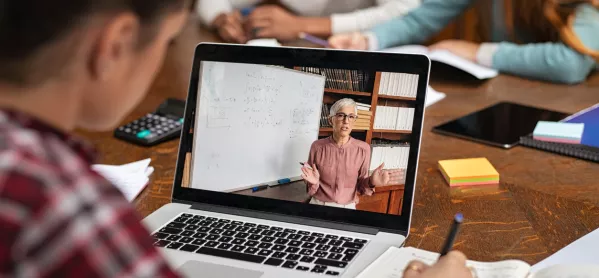Over a quarter of students were unable to access their lessons online last term, according to the NUS students' union.
The NUS surveyed almost 4,200 students in colleges and universities and found that 38 per cent of them were not satisfied that their education was “of a good standard or quality” last term while teaching and learning was moved online due to coronavirus.
The union said that the students were unable to access their studies online owing to no access to physical resources, online materials being insufficient, a lack of IT equipment/technology, absent or poor wifi, and not having access to IT programmes/software.
Colleges were encouraged to apply to the Department for Education for extra bursary funding where needed, in order to ensure students could access learning online. However, an exclusive Tes investigation found that 16 colleges applied for £886,847 worth of funding – of which only £413,303 was awarded.
News: Colleges must prioritise student wellbeing, says NUS
More: Only half of hardship requests successful
Background: Two-thirds of FE teachers don't feel safe returning
The research also found that of those students who would normally receive learning support, 19 per cent felt that they had not received “adequate support to enable them to continue their work to the best of their ability throughout the Covid-19 pandemic”.
Larissa Kennedy, NUS national president, said that the findings were unacceptable.
She said: “These figures must act as a wake-up call to the government and the entire education sector so that all students have the resources that they need for their learning before the start of next term.
“Students who have not been able to receive the teaching that they were entitled to last term must be given the option to redo the term or have their fees written off or reimbursed.
“Coronavirus has entrenched the disadvantages that students of colour, disabled students and working-class students experience, and this should be of concern to all of us. If we are to ensure that education is accessible for all we must eradicate injustice as quickly as we can, such as by providing students with the resources and technology that they need to learn."





